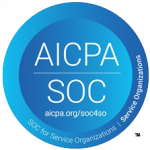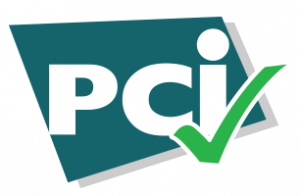When your internal collection process has reached its end, and the bill remains unpaid, it’s time to turn the process over to a collection agency.

Choosing a collection agency to manage your delinquent accounts can be a tough decision. You want an agency that will represent your hospital or healthcare organization professionally and courteously. You want an agency that will provide a satisfactory recovery rate, without tarnishing your reputation with patients and can work within your hospital’s EMR and operations process.
Many healthcare organizations decide to use an agency based solely on price – as if collections is simply a commodity. But, as with most things in business and life, you get what you pay for. Price should not be the main reason you pick an agency.
When choosing a healthcare collection agency, there are a few key considerations to keep in mind to protect your patients and your bottom line.
1. Services Across the Healthcare Revenue Cycle
Healthcare debt collection is only one stage of the revenue cycle and should be considered as a last resort. Implementing successful early-out and insurance denials management programs should also be a priority for covering all available potential payment sources, before the account ages to bad debt status (when it becomes more difficult to collect.)
Consider partners who can offer you services beyond primary and secondary bad debt collections, like:
- Pre-Registration Call Campaigns
- Early Out Self-Pay AR Management
- Presumptive Charity Scoring and Assistance
- Medicaid Billing & Enrollment
- Customized Call Campaigns
- Insurance Denial Management and Follow Up
2. Industry Experience
Make sure you partner with an agency possessing the skills and knowledge needed to collect your patient accounts successfully. Medical debt is unlike all other commercial debt, in that it is typically not a debt of choice. Therefore, the approach to these accounts should be considerably different than you would find in a more commercial-oriented collection agency.
Additionally, both the healthcare and debt collection industries are rigorously regulated and monitored. You need a partner who is educated and compliant in both. A partner who has developed and implemented a tested set of policies and procedures that are continuously reviewed and updated to meet the ever-changing landscape of the healthcare industry.
3. Recovery Rate
Of course, recovery rate is very important. When you ask about what the agency expects in terms of a recovery rate, listen carefully. If the sales representative quickly gives you a percentage, without asking several questions first, you might want to consider another agency. No two organizations are the same, recoveries will differ dramatically based on multiple factors, such as the demographics of your patients, age at placement, and prior collection activities, among others. The services provided, and the resulting recovery rate should be customized to meet the specific needs of each individual engagement.
Also, listen for key indicators about recovery practices. Any healthcare debt collection agency should require their collectors to take the ACA Pledge and commit to treating patients as partners in seeking a solution to resolving debt with dignity and respect.
4. Procedures and Policies
It’s essential for you to feel comfortable with your collection agency. After all, they are representing your organization. Make sure to ask about the following:
- What procedures does the agency use to collect, from the moment it begins work on your accounts?
- When does it begin work on an account with letters, phone, or other communication methods?
- What do the collection letters say?
- How do they train their employees? Are all collectors trained in HIPAA, data security, and regulatory compliance?
- How do they make sure they’re operating in compliance with the Fair Debt Collection Practices Act (FDCPA), CFPB rules, and other consumer protection laws, which are critical to third-party debt collection agencies?
- How is patient health and financial information protected?
- How are data analytics and business intelligence employed to help you resolve problems within your revenue cycle before they occur?
- Are speech analytics employed to ensure that every patient is treated in compliance with your organization’s policies?
performance-driving RCM insights?
5. References
What do clients have to say about working with the agency? Try to contact a least two hospitals or healthcare organizations currently using the agency’s services. Find out if the arrangement is successful and how satisfied clients – and their patients – have been with the services they’ve received.
6. Professional Credentials and Audits
- Does the agency comply with all state licensing and bonding laws, if applicable? If licensing or bonding is not required in your state, find out how long the agency has been in business. Experience is often a good indication of quality.
- Is the agency a member of state or national trade associations, such as ACA International (the Association of Credit and Collection Professionals)? Members of ACA agree to comply with all federal and state laws and regulations, as well as the ethical standards and guidelines established by the association. What about other associations – like the HFMA, MGMA, or AAHAM?
- What third-party audits are the agency certified in? PCI? HIPAA HITRUST? SOC II? Audited financials? Third-party audits provide validated proof that an agency has procedures, safeguards, and checks and balances in place. Nothing can take down a company faster than a data breach.
7. Appropriate Insurance Coverages
Insurance is essential in this industry. Does your collection agency maintain the necessary insurance policies to protect and mitigate against liabilities that may arise, whether accidental or malign incidents?
Especially critical these days is a robust Cyber Liability policy. As the fallout of recent high-profile data breaches illustrates, the importance of security in handling consumer data is paramount to maintaining the trust and goodwill of your consumer base. Also, understand what the appropriate levels of insurance need to be for your business and the agency’s size. One-size insurance policies do not fit all. For instance, Cyber Liability insurance policy limits are completely based upon the size of the agency and the amount of data in their system. Many creditors have a certain level of coverage required to “check the box” in their buying process, but they have no idea if the coverage they are requesting is the right amount for the agency. Cyber Insurance works much differently than Errors and Omissions Coverage. Learn the difference, don’t just check the box.
Revco Solutions recognizes that there can be no guarantees against cyber attacks. The threats are many and ever-evolving. This fact makes it even more imperative that you have confidence in the security precautions being deployed at every level of your vendor relationships.
These seven points should get you started on finding a qualified and credible collection agency. For information on how Revco Solutions can answer these questions, browse the materials in our Resouce Library or contact us with questions about how we can help improve your bottom line.






